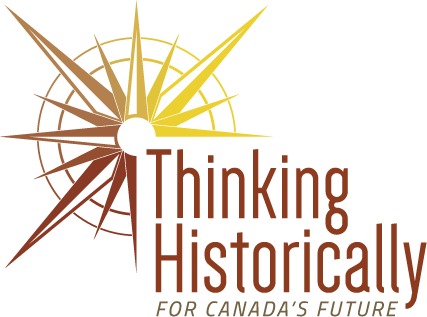Nichelle Penney,
Secondary School Teacher
Nichelle Penney (she/they) teaches social studies for grades 8-12 students and has been teaching for 12 years. Currently, they teach at Sa-Hali Secondary School in Kamloops, British Columbia. Nichelle works in a high school of approximately 1,000 students that has a growing First Nations population and some international and refugee students who have moved to the area. The school is in a growing city of approximately 100,000 people. Nichelle is originally from Newfoundland and has lived in British Columbia since 2009. She remarked that the context in British Columbia is different from the East coast mainly because of the greater focus on Reconciliation and Indigenous ways of knowing. There is also more of an effort to tell the stories of people who are not often included in curriculum and textbooks. “In BC, I think it’s a different context where we can look at both sides and evaluate where the stories are coming from. Who’s the one telling the stories of history and exploring the idea of history written by predominantly white cis-gendered men? Also, what stories are not being told and what voices need to be heard? That’s unique to the context where I’m situated.”
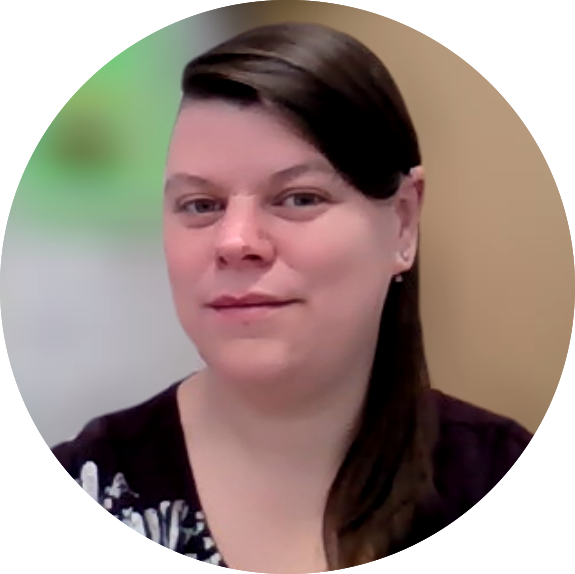
Sa-Hali Secondary
Kamloops, British Columbia
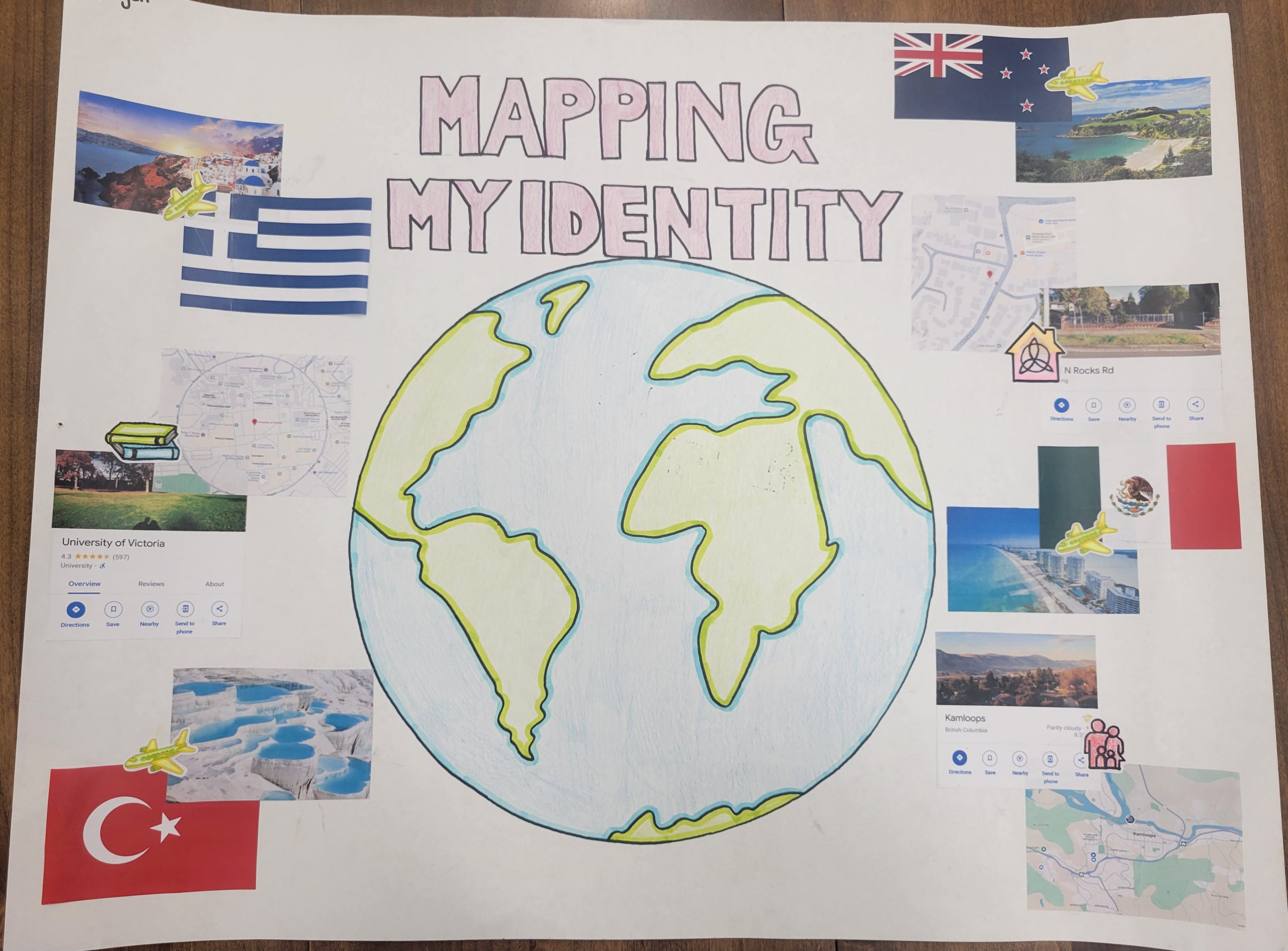
Curriculum & Resources
For Nichelle, it is important for students to understand that historical narratives are constantly being reinterpreted and changing. They explained, “When we teach history, it’s fluid.”
Nichelle emphasized the importance of modelling the attributes of a lifelong learner in their teaching practice. “If we teach the same thing over and over again, we’re not learning. We’re not growing, we’re not adapting. Teaching history in my context is about being a lifelong learner, along with my students.”
Additionally, Nichelle wants to ensure that the curriculum and their lessons are relevant and meaningful to students. Her teaching aims to create connections and help students understand that their stories and opinions matter. It is important that students “see themselves reflected in the lessons and the curriculum, then they can see themselves reflected in the community. And that is hugely important. Because if we’re not reflected in what we talk about and what we do, then there’s a disconnect that comes out of that.”
Nichelle believes that focusing on Indigenous histories and knowledges helps students understand Canadian history from different perspectives, which makes history more engaging. To illustrate this point they describe how Canadian history was very different twenty years ago. “We can see how one-sided it was. We can see how limited the voice and scope were, and how narrow History was. And now we look at the history using Indigenous perspectives. You know we have evolved in terms of our understanding.”
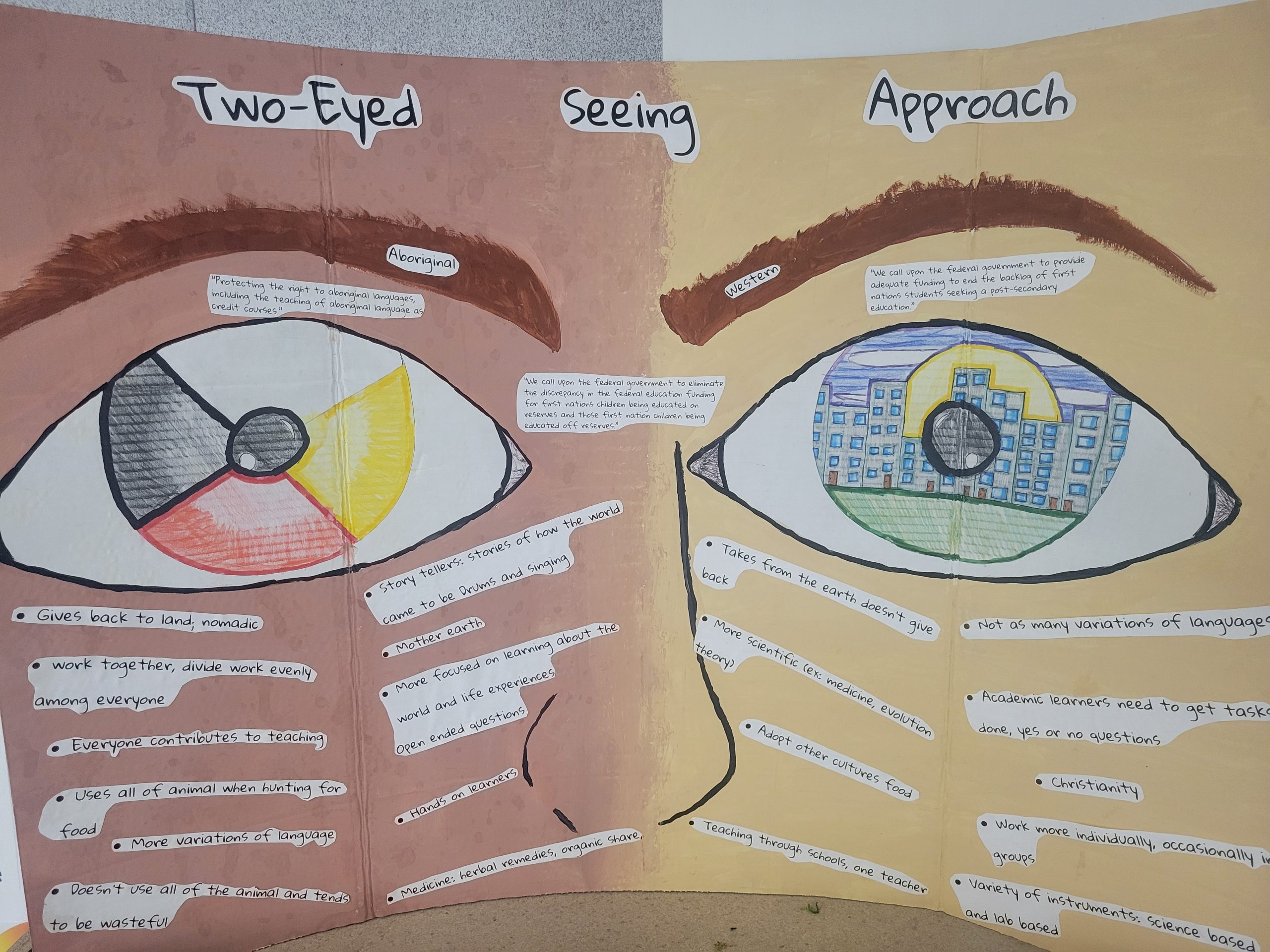
Indigenous Knowledges
Nichelle teaches in the unceded ancestral lands of the Tk’emlúps te Secwépemc and believes in the importance of bringing in Indigenous cultural aspects to every lesson, activity, and learning opportunity, both within and outside of the classroom.
The rich culture of the Tk’emlúps te Secwépemc and the history of colonialization and its impact on Indigenous people is an important theme in their teaching.
Nichelle asks students questions such as, “What do you think is the most important thing we have learned this semester?” that stem from exploring new ways of thinking about Indigenous people. One student reflected that they “have learned that we do not respect Indigenous people enough, and we need to do more to help amplify their voices.”
Students are immersed in Indigenous histories and knowledges. In her teaching practice, they believe it’s essential to help students understand that “…in Indigenous knowledge, everything is connected, everything is within a circle. And so, it’s important to make sure that our learning is within a continual circle, because once you stop learning, once you stop questioning, that circle breaks, and there’s no point.”
Nichelle also tries to teach in different ways that reflects Indigenous ways of knowing. “We know that Indigenous languages have always been done through an oral context. So, I strive to have a project-based course whereby students have the option to do the entire course orally, whether through videos, presentations, or various alternative styles.”
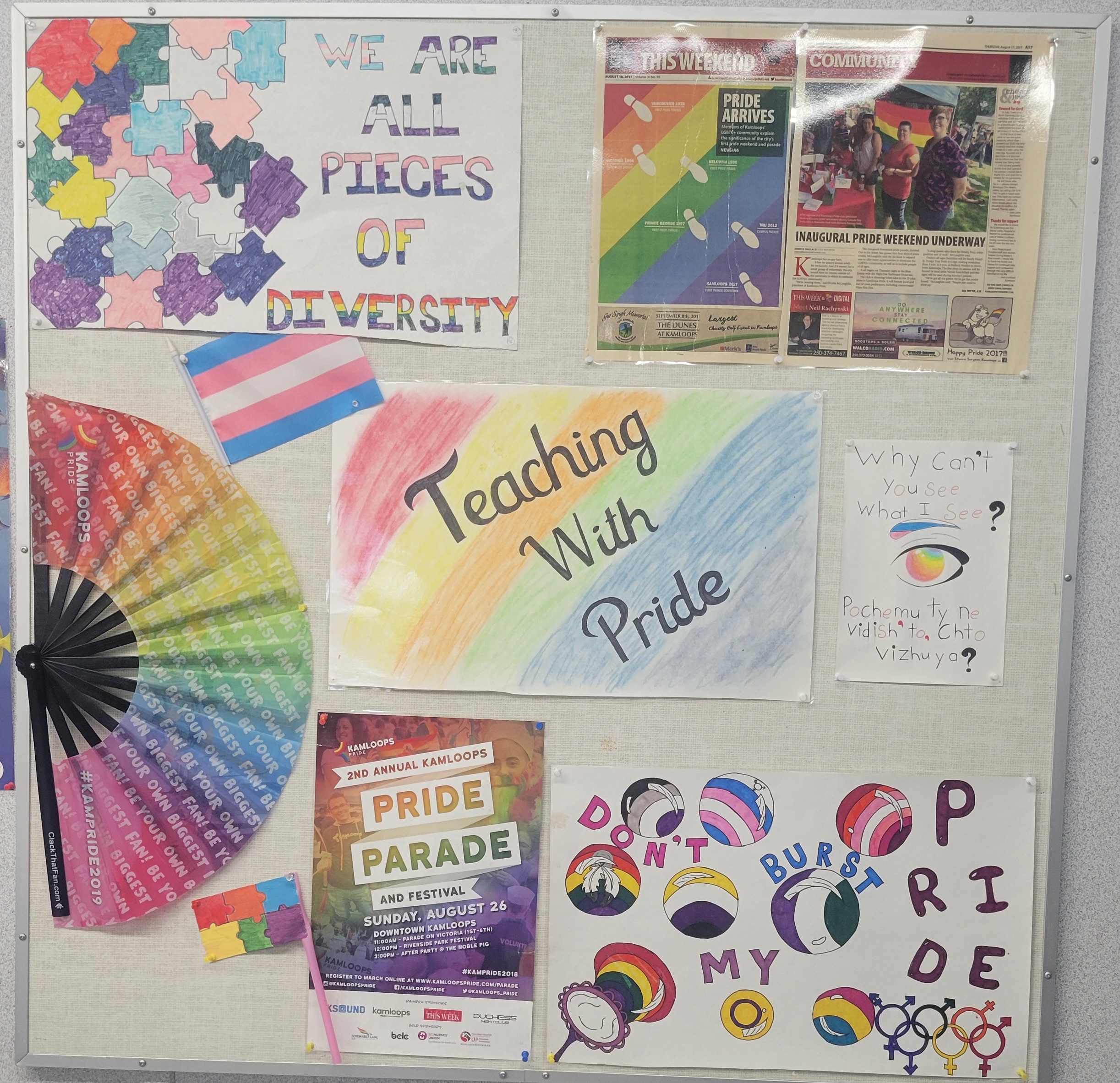
Teaching & Learning
Growing up in a Queer family has had a huge impact on Nichelle’s lived experience and teaching practice.
“I grew up in a Queer home. My mother’s Queer, and she came out when I was in grade seven. And that influenced me a lot. In grade eight, I completed a research project on what rights Queer couples and Queer people had in Canada at that time.”
As the result of the research project, Nichelle learned that many rights did not exist yet for Queer people like their mom. “You could be evicted, fired, couldn’t get married, couldn’t adopt. All of these things just blew me away.”
Nichelle’s identity was also influenced by the experiences of her great-grandfather, a Chinese immigrant to Canada. “He lived under colonization and Catholicism, and those pieces of oppression existed for his entire life here in Canada. He wasn’t allowed to keep his name, he was forced to take on a Christian first name, he was forced to change his last name because it wasn’t ‘normal’ sounding enough.”
These experiences have had a significant impact on how Nichelle sees herself today. “When I unpacked myself and realized I had a lot of internal oppression, that even though I’m white, even though I’m a third-generation settler, I still had internal oppression, and so unpacking that was massive.” These experiences inform how she teaches her students. “I share those experiences with my class, I don’t hide who I am.” Being honest, sharing their history, and being emotional about various topics being explored in the classroom has allowed Nichelle’s students to lean into the discomfort of exploring how identity is complex and has a role in shaping their worldviews.
Co-created by Nichelle Penney and Paul McGuire
